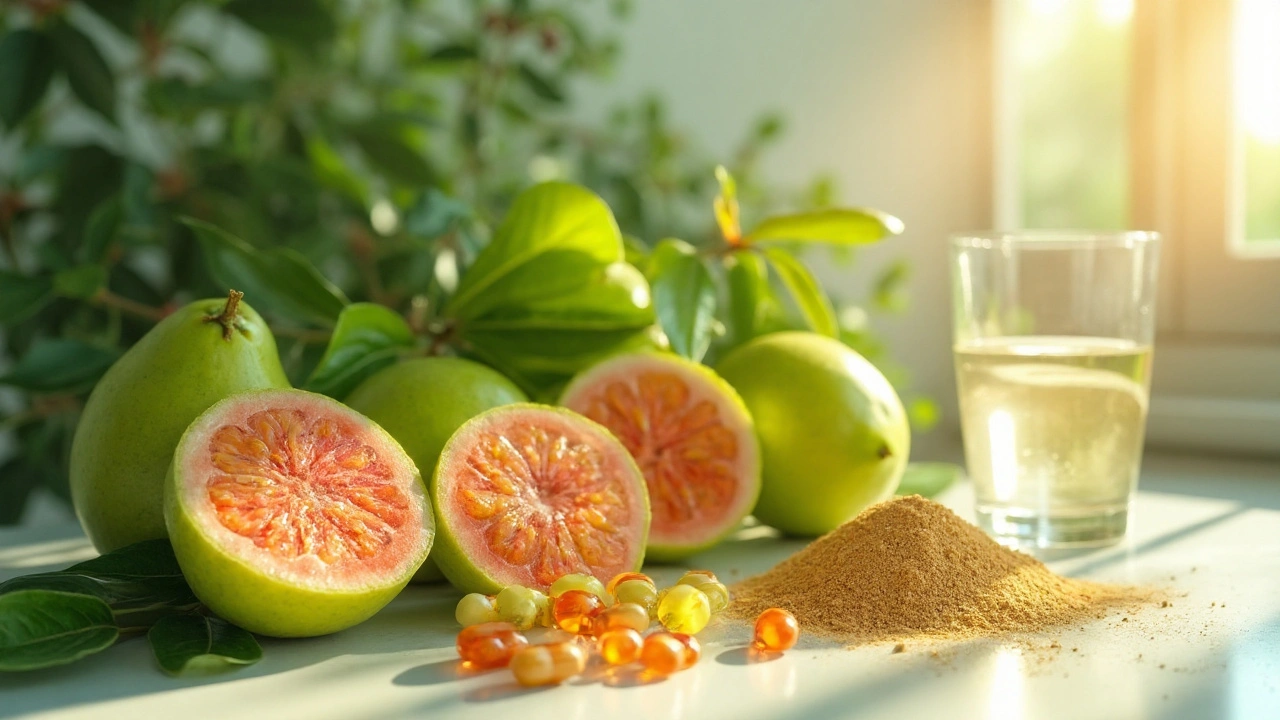Guava Dietary Guide: Benefits, Uses, and Simple Tips
If you’ve never tried guava in your meals, you’re missing a sweet, low‑calorie fruit that packs a punch of vitamins. It’s easy to add, cheap in many markets, and tastes great fresh or cooked. Below you’ll find the main reasons to put guava on your plate and how to do it without hassle.
Why Guava is a Powerhouse for Your Diet
Guava delivers more vitamin C than an orange, plus a solid dose of fiber, potassium, and vitamin A. The fiber helps keep digestion regular, while potassium supports blood pressure. Antioxidants in guava fight free radicals, which can lower inflammation and support immune health. All these nutrients come with around 60 calories per cup, making it friendly for weight‑watchers.
Easy Ways to Add Guava to Your Everyday Meals
Start with the simplest method: slice fresh guava and toss it into a breakfast bowl of yogurt or oatmeal. For a snack, blend a couple of pieces with water or coconut milk to make a quick smoothie. If you prefer savory, dice guava and add it to salads, salsas, or stir‑fries. The mild sweetness balances spicy dishes nicely.
Guava can also replace higher‑sugar fruit juices. Just blend one cup of guava with a splash of lime and a hint of honey for a refreshing drink that’s lower in sugar than most store‑bought juices. This option works well for kids who want a sweet flavor without the extra calories.
When using frozen guava, let it thaw a bit before blending. Frozen pieces keep nutrients intact, and you get the same taste without buying fresh every week. Keep a bag in the freezer for quick smoothies, sauces, or even a guava‑based marinades for chicken or fish.
Portion control matters. One cup of fresh guava (about five medium pieces) is a solid serving. It gives you the nutritional boost without overdoing the natural sugars. If you’re counting carbs, remember that guava has roughly 14 grams per cup, which fits nicely into most low‑carb plans.
Any concerns? Most people tolerate guava well, but if you have a latex allergy, be cautious—guava can trigger a reaction. Also, because of its high fiber, increase intake gradually to avoid stomach upset. Drinking plenty of water helps the fiber move through the system smoothly.
For those looking to supplement, guava powder or dried guava chips are convenient options. The powder mixes into shakes or baked goods, while the chips serve as a crunchy snack. Choose products without added sugars or preservatives to keep the health benefits intact.
Finally, experiment with flavors. A dash of cinnamon, a squeeze of lemon, or a sprinkle of sea salt can change the profile and keep meals interesting. The key is to keep guava a regular part of your diet, whether fresh, frozen, or in a supplement form.
Ready to give guava a try? Grab a few pieces at your local market, toss them into a dish you already love, and notice the extra burst of vitamins. Your body will thank you, and you’ll discover a tasty way to stay healthy.
Unlock the Power of Guava Supplements: Health Perks, Nutrition, and Science-Backed Benefits
Discover how guava dietary supplements supercharge health. Learn about science-backed benefits, best uses, and why this tropical fruit is a wellness game-changer.
